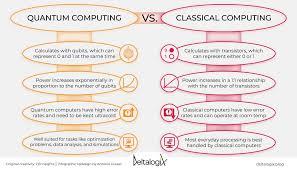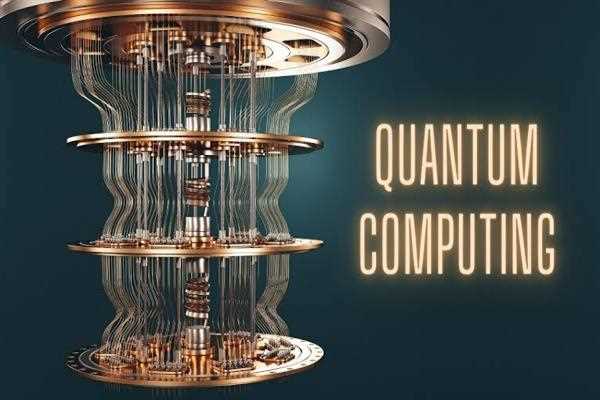Quantum computing is a rapidly developing field that utilizes principles of quantum mechanics to perform complex computations. It is fundamentally different from classical computing, which relies on classical physics and binary-based digital information processing. Here's an overview of quantum computing and its distinctions from classical computing:
Basic Units of Information: Classical computers process information in binary digits or "bits," which can represent either a 0 or a 1. Quantum computers, on the other hand, use quantum bits or "qubits." Qubits can represent a 0, a 1, or a superposition of both states simultaneously, thanks to the principles of quantum mechanics. This superposition enables quantum computers to perform computations in parallel and potentially solve certain problems exponentially faster than classical computers.

Parallelism and Superposition: Classical computers process information sequentially, one bit at a time, whereas quantum computers can process multiple calculations simultaneously due to the superposition property of qubits. This parallelism allows quantum computers to explore different computational paths simultaneously, potentially reducing the time required for complex calculations.
Entanglement: Another key principle of quantum computing is entanglement. When qubits are entangled, the state of one qubit becomes correlated with the state of another, regardless of their physical separation. This property enables quantum computers to perform operations on multiple qubits collectively, resulting in powerful computational capabilities that surpass classical systems.
Quantum Algorithms: Quantum computing employs specific algorithms designed to harness the unique properties of quantum mechanics. Quantum algorithms, such as Shor's algorithm and Grover's algorithm, offer significant speedup in solving certain mathematical problems. For example, Shor's algorithm can efficiently factor large numbers, which has significant implications for cryptography and code-breaking.
Quantum Gate Operations: In classical computing, logical operations are performed using logic gates, such as AND, OR, and NOT gates. Quantum computing utilizes quantum gates that manipulate qubits' states, enabling quantum algorithms' execution. Quantum gates, such as the Hadamard gate, Pauli gates, and CNOT gate, perform transformations on qubits, allowing for complex computations and qubit entanglement.
Error Correction and Decoherence: Quantum systems are highly sensitive to environmental noise and disturbances, leading to a phenomenon known as decoherence. Decoherence causes qubits to lose their fragile quantum states, resulting in errors in computations. To address this, quantum computing research focuses on developing error-correcting codes and fault-tolerant techniques to mitigate decoherence and ensure reliable quantum computations.
It's important to note that quantum computing is still in its early stages, facing significant technological and engineering challenges. The construction of stable and scalable qubits, the mitigation of errors, and the development of fault-tolerant systems are areas of active research. Nonetheless, quantum computing holds great promise for solving complex problems in various domains, including optimization, cryptography, drug discovery, and simulation of quantum systems.
